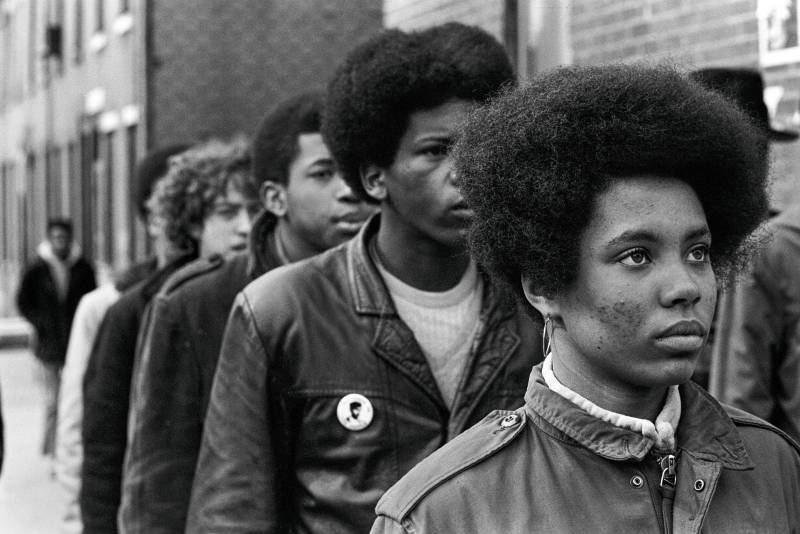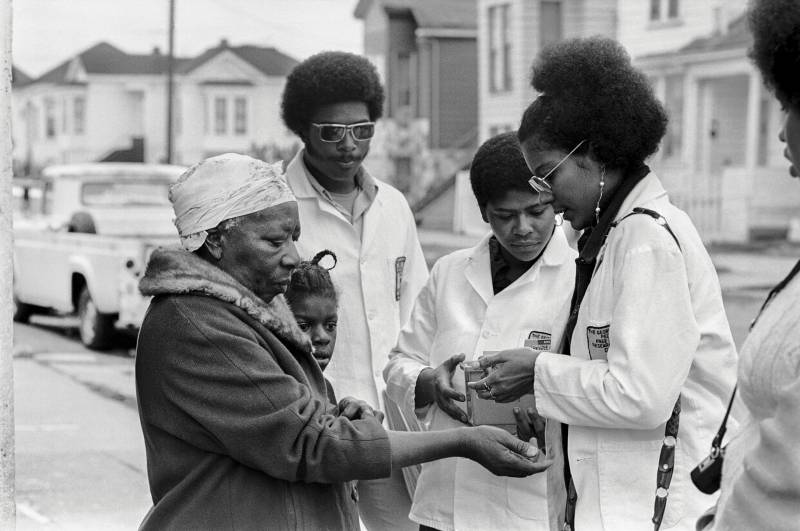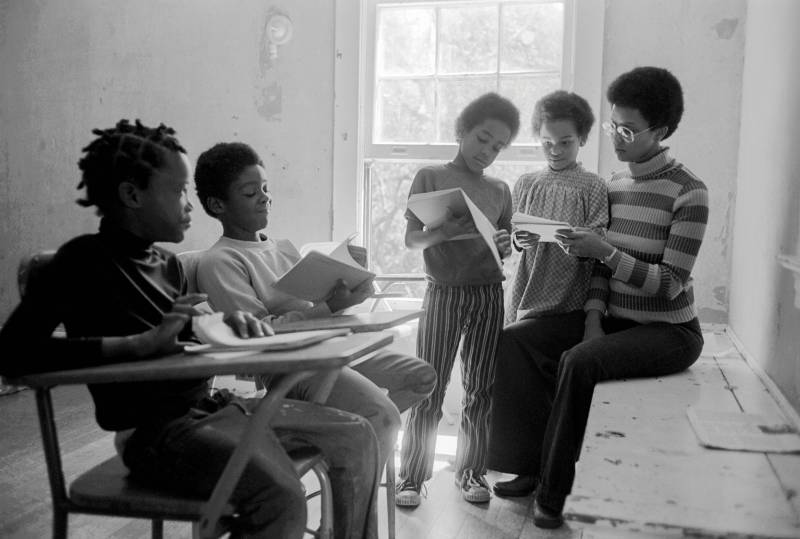When FBI director J. Edgar Hoover declared the Black Panther Party the “greatest threat” to national security in 1969, Ericka Huggins was waking at dawn with fellow Party members to prepare free breakfasts for local children. When the political organization was founded in 1966 to challenge police violence, racism and poverty, the government and media were quick to classify the group as violent and aggressive. That portrayal ignored the Party’s survival programs that provided clothing, medical services and other resources to their Black, brown and Indigenous communities — programs often led by women.
In ‘Comrade Sisters,’ Women of the Black Panther Party Take the Spotlight

More than 50 years later, Huggins and photojournalist Stephen Shames — who was a 19-year-old UC Berkeley student when he got involved with the BPP — aim to bring those women into the light with the release of the photo book Comrade Sisters: Women of the Black Panther Party, out Oct. 10 (ACC Art Books). The book’s national tour kicks off with a half-dozen events in the Bay Area Oct. 9–13, including an Oct. 9 talk with renowned activist Angela Davis, who wrote the book’s foreword, at Marcus Books in Oakland.
A dialogue between past and present, Comrade Sisters juxtaposes more than 100 black-and-white images from the late 1960s with contemporary conversations, featuring interviews with 50 women who were Party members. While women made up over 60% of the Party, their presence remained largely understated in the public eye — until now.

Shames’ behind-the-scenes photos document the women of the Black Panther Party in their most vulnerable, powerful, disheartened and joyous moments. In one, a young girl holds up a Black Panther newspaper in a bus terminal, eyes hopeful, as men in uniform carry on walking behind her. In others, women are seen teaching, moving boxes of food, leading marches and smiling for the camera, their dynamism fully on display.
“I hope that young girls and their moms and grandmas — and men also — look at the pictures and they’re really inspired to see what a group of women was able to accomplish back then, and to not get discouraged,” says Shames. “That, you know, they can do it again.”
In anticipation of the book’s release and tour, Huggins says she looks forward to being in solidarity with old friends and strangers alike — all connected through a broader history and common fight.

“I think that sisterhood doesn’t necessarily have just to do with the biology of it. It is the connection. We are the family we choose,” says Huggins. “That’s what’s in the underpinning of the word ‘comrade’: a sister or a brother, a people connected in struggle. And what is that struggle? To take something away from people? No — to give agency to people so that they can reclaim their own inner power and the power within their communities.”
Looking back on the Black Panthers’ work, says Huggins, “I see why [it was] threatening to people who hold the wealth and the power in a place. But we were not intending to threaten. We just wanted to make a difference.
“And so now we’re older, and we can look back at it with great amazement, actually, at how brave we were in the face of so much.”

‘Comrade Sisters: Women of the Black Panther Party’ co-authors Stephen Shames and Ericka Huggins will be joined by book contributor Angela Davis for a discussion and book signing on Sunday, Oct. 9, from 2-4 p.m. at Marcus Books in Oakland. Attendance is free; more details here. A schedule of other events can be downloaded here.

